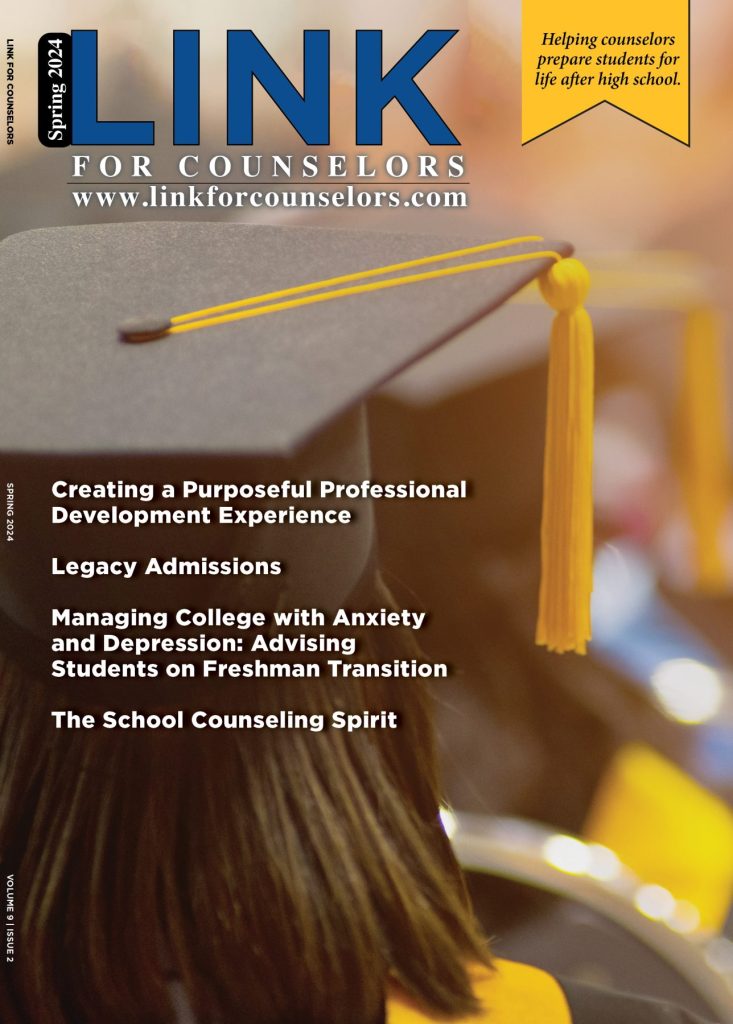Helping Your Child Tune Out the Noise
As a college admissions consultant, I share my enthusiasm and genuine excitement about the college process with my students. Sometimes, I am greeted with an equal level of engagement and interest. Other times, I am met with disengaged students who are feeling stressed, frustrated or even angry. Why is this the case?
Senior year is filled with many emotional ups and downs. There is the excitement of prom, graduation, spirit weeks, home-coming and other happy times. On the flip side, students experience fear and anxiety about the future. They have mixed emotions about missing friends, leaving the comforts of home and having to commit to important decisions. It’s time to grow up and that is frightening.
Like your child, you too will experience the emotional ups and downs and mixed feelings of senior year. As soon as you have a child going through the college admissions process, it may feel like everywhere you go, you hear the word “college.” It seems as if everyone you run into has an opinion on what you, as the parent, should do and what colleges will be best for your child. College talk is inescapable.
Your child is also exposed to a constant buzz of college talk that adds to her stress. The school counselor wants to discuss her college list. Her physics teacher is recommending a STEM major. The chatter in the classroom is who’s applying where, who’s applying early decision and who’s being recruited for a sport. The ongoing noise is difficult to tune out and the pressure to have a well-defined path can be overwhelming. Students who know where they want to attend college and what they want to study have the luxury of tuning out the noise.
If your child has not decided on his direction, the pressure to make a decision coupled with the fear of making the “wrong” choice may result in disengagement from the college process. Kids are always comparing themselves to their peers. When they feel inadequate or insecure, they are likely to either freeze and avoid college planning or make rash decisions and draw the process to a conclusion before fully exploring their options. These defense mechanisms will lead to poor college admissions outcomes.
Help your child recognize that the college selection and application process is a very individual and personal journey. Focusing solely on her own thoughts and feelings and avoiding comparisons with peers will help your child choose a college that fits them academically, personally and socially.
How Can You Support Your Child?
Start College Planning Early
The earlier you start college planning, the more time you have to explore options, visit schools and consider important decisions. Make a list of small steps in the planning process. It helps to feel productive toward your goal.
Set Boundaries
Some high school students feel that their parents only want to talk about college. Instead, set time aside (perhaps Tuesday nights during dinner) for college conversations. If the topic is stressful, avoid engaging in college talk at family gatherings and in public settings.
Visit Colleges
Innocent questions like, “Do you want to attend a large or small college?” may become anxiety triggers. If your child has never toured a college, it may be difficult to answer that question. Visiting alleviates the mystery of colleges.
Identify Role Models
It is reassuring to know that curvy paths often lead to great success. Talk about (and to) successful friends and family members who took their time identifying their college major and careers.
Have an Accepting Mindset
Alleviate the fear of making a mistake by cultivating a culture in your household that there is no single, correct way to do most things. Students who believe that there is more than one right way will be able to easily discern when the opinions of others matter and when they do not.
Talk About ALL the Reasons to Go to College
Students go to college for many valid and worthy reasons, not merely to pursue a career. Learning something new, gaining independence, making new friends and to preparing for graduate school are all reasons to attend college. Help your child understand that the noise they hear may be coming from someone who has chosen a different reason to attend college.
Consider Experiential Learning
If career exploration would help your child plan for college, consider job shadow options, internships and part-time jobs. Online interest inventories and personality assessments are also convenient and easy ways to generate career/major ideas. By broadening your child’s experiences, he will feel in control of the process and confident he is making progress.
Model Tuning Out the Noise
You can model tuning out the noise by keeping information to yourself. If you learn college-related news regarding a friend or family member, don’t repeat it to your child. Keep the focus on your child and her needs and preferences to reinforce that no college decision is as important as her own.
For more information on college planning or how The College Spy can help you and your child figure out a plan, please visit our FAQ section and check out our other featured blogs.

The College Spy is a full service independent educational consulting firm that assists students and families across the US and internationally with the college selection and application process. Follow The College Spy on Facebook, Twitter, YouTube, Instagram, LinkedIn and on The College Spy Podcast.




